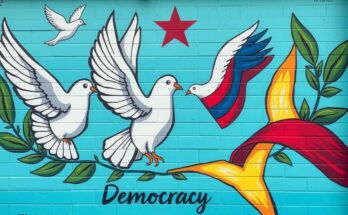The Inter-American Court of Human Rights found Guatemala responsible for the 1989 forced disappearances of four indigenous rights defenders, ruling that the state violated multiple human rights. It mandated significant actions to be taken by Guatemala, including thorough investigations and support for victims’ families, amidst a sharp rise in violence against human rights defenders in the country.
In a landmark ruling, the Inter-American Court of Human Rights declared Guatemala responsible for the forced disappearances of four indigenous rights defenders in 1989. The court highlighted the egregious violations of human rights faced by Agapito Pérez Lucas, Nicolás Mateo, Macario Pú Chivalán, and Luis Ruiz Luis, who fought against coercive recruitment into civil defense forces. The State’s failure to conduct a meaningful investigation over 35 years exacerbated the injustice, deepening the trauma for the victims’ families. The ruling emphasized Guatemala’s systematic neglect in addressing these disappearances, with military authorities withholding information and avoiding accountability. As part of the judgment, the court mandated a comprehensive investigation, the establishment of search strategies for missing persons, and the declassification of military records. Furthermore, Guatemala is compelled to enhance the Human Rights Ombudsman’s capacity to investigate and provide much-needed psychological support and compensation to the victims’ families. This ruling unfolds against a backdrop of worsening conditions for human rights defenders in Guatemala. Reports indicate a staggering rise in attacks, with nearly 6,000 acts of aggression documented against these brave individuals within a year. Despite the urgent call from activists, state compliance remains elusive, especially after the cessation of previous commitments in 2020 under the disfavored administration. Governor Bernardo Arévalo’s new administration may bring hope, yet, civil society continues to navigate a perilous landscape filled with restrictions and fears of repression.
The case of Pérez Lucas et al v. Guatemala sheds light on the troubling legacy of human rights abuses during Guatemala’s civil conflict, particularly against indigenous human rights defenders. The Inter-American Court’s ruling is not merely an isolated decision but a critical step in addressing historical injustices, as it reflects ongoing struggles against states’ reluctance to confront their pasts. The failure to investigate such disappearances illustrates systemic issues within the Guatemalan state, which continue to endanger human rights defenders today, as they face increasing violence and repression despite international outcry.
The Inter-American Court’s decision reverberates as a call for accountability and justice in Guatemala, demanding state responsibility for grave human rights violations. The ruling not only seeks to bring closure to the victims’ families but also serves as a crucial reminder of the ongoing threats that human rights defenders endure in the country. As Guatemala stands at this pivotal moment, its commitment to upholding human rights and protecting those who advocate for them will define its future.
Original Source: www.jurist.org



